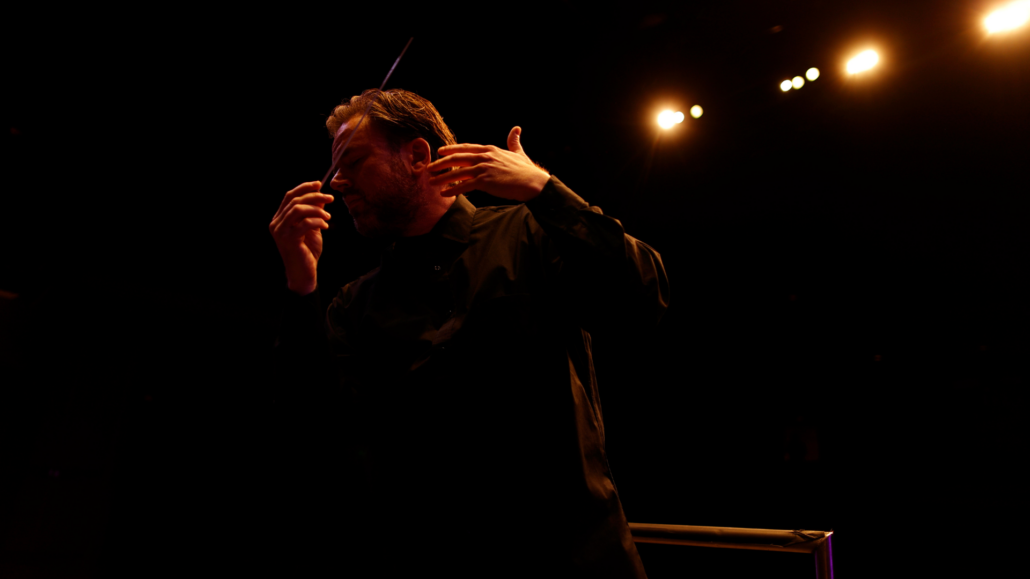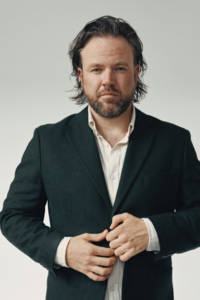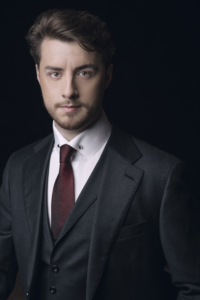KLUXEN – LISZT & LIEDER
What is it like to be a bat? That’s both the title and the premise of a 1974 paper by the American philosopher Thomas Nagel, in which he considers the nature of consciousness and decides, more or less, that while self-awareness is not an exclusively human attribute, other modes of being are inaccessible to us due to our own perceptual limitations. We can’t, for instance, know what it is like to swoop and soar in utter darkness, guided only by echolocation; in fact, it’s hard enough trying to decipher what’s going on in any other human’s mind.
With this concert, Victoria Symphony music director Christian Kluxen is not trying to bring us closer to bat-like sensitivity; for that, of course, he would need to program Johann Strauss II’s Die Fledermaus Overture. Pairing Strauss with Danish composer Niels Marthinsen’s Batman-inspired Concerto for 3 Trombones might be an inspired choice for a future season, but Kluxen is not fond of such easy thematic connections, preferring instead to explore imaginative links between seemingly disparate works. The conductor could, however, be attempting to approximate a condition of synesthesia, a relatively benign manifestation of neurodiversity in which those so affected hear colour, see music, and taste poetry.
This is perhaps a far-fetched notion, but it’s not entirely illogical. “Gentlemen! A little bluer, if you please,” Franz Liszt once directed a befuddled orchestra; for the Hungarian composer, sound was often accompanied by its visual analogue. Neither Gerald Finzi, Richard Strauss, nor Paul Hindemith would make such an explicit connection between eyes and ears, but all four of the composers featured in this program were concerned with the interplay between different art forms—and, by extension, different forms of perception.
Hindemith’s Symphony: Mathis der Maler, an orchestral preview of what would eventually find operatic form, is a sonic biography of the 16th-century German painter Matthias Grünewald, best known for his Isenheim Altarpiece, a massive and moving depiction of Jesus Christ’s martyrdom and other scenes from Christian mythology. Somewhat concealed in this three-movement composition, although made more explicit in the ensuing opera, was the composer’s view of Grünewald as a self-willed artist, bent on forging a personal, expressionistic style that breaks with past formalities. These, needless to say, are qualities that Hindemith aspired to himself, to the detriment of his career in 1930s Germany if not to his long-term reputation.
The other works here find their inspiration in literature, a more conventional source of musical creativity. Liszt’s Les préludes (d’après Lamartine) nominally spring from the French author and statesman Alphonse de Lamartine’s Nouvelles méditations poétiques, although some historians argue that the poet Joseph Autran provided the initial spark, having already furnished the composer with texts for four choral pieces written in 1844. What is clear is that Les préludes began life as an overture for Liszt’s choral cycle, but soon blossomed into a five-part suite, and the unofficial template for the then-new genre of the symphonic poem.
Finzi’s Dies Natalis and Strauss’s Five Orchestral Songs are more explicitly indebted to poetry—as is only natural, as they are vocal showpieces. Here, they will be sung by tenor Josh Lovell—and while this concert will conclude with Mathis der Maler, Lovell’s presence is at its core.
“Josh is from Victoria and is currently building an incredible career on the world’s biggest stages,” Kluxen points out. “I worked with him very briefly at last year’s Victoria Symphony gala event, and his voice is truly something special. So, since I was very impressed with Josh’s musicianship, I wanted to create a program around works where he would get a chance to display more depth. I also thought it would be a rare treat for the Victoria audience to get to hear him in works that diverge from the opera repertoire. Together with Josh, we found some music that he would be enthusiastic about singing.
“How often you will hear a tenor sing these songs by Richard Strauss?” the conductor continues. “They are usually performed by a soprano. Nevertheless, judging by the singers who performed Strauss’s works during his own lifetime, whether operas or lieder, he often had slim, agile, and lyrical voices in mind when composing. This is the reason why I believe that it will be a very interesting and beautiful experience to hear them sung by a voice such as Josh’s.”
Beyond the beauty and power of Lovell’s voice, Kluxen adds, remains the idea that text and music can combine to become larger than either alone. “I don’t think that it is necessary for the musical experience to understand the works based on their extra-musical background,” he notes. “But it is of course interesting to see how there is a sense of a spiritual or mystical quality to all of these pieces of music. They deal with love, the elements, the stars, imagination, spirituality, or religious ecstasy—and so one really gets the feeling that there must be more going on than simply what we hear.”
Is that an intimation of how synesthetes comprehend or perceive their world? Perhaps, and perhaps this program’s combination of poetic text, sonic illustration, and emotive singing will give the rest of us a taste of their multi-faceted experience.
Notes by Alex Varty



 Christian Kluxen, conductor
Christian Kluxen, conductor Josh Lovell, tenor
Josh Lovell, tenor